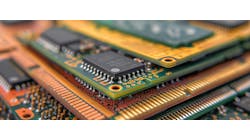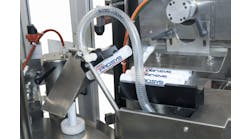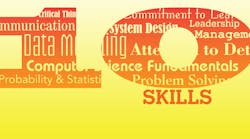Technologies are changing so rapidly that today’s cutting-edge developments will be old news by tomorrow. So how do engineers in various fields keep up in such a mercurial environment?
Engineering is a domain where one’s training never ends, even after years of professional schooling. Developing a set of critical technical and soft skills is critical for keeping up with the latest engineering developments.
Here are 10 technical and “soft” skills to focus on.
Mechanical Skills
Computer Science Fundamentals
Learning computer science fundamentals and programming is not just for computer science engineering grads anymore. All engineers should devote some time to learning computer technology, even those studying fluid power or mechanical engineering. An engineer should be familiar with data structures, algorithms, and computer memory manipulation to be ready for any engineering career. Engineers should consider participating in programming hackathons and practice problems to hone their IT skills.
Data Modeling
This skill helps engineers estimate datasets’ underlying structures to identify useful patterns. It also helps in identifying correlations between data, data clusters, and so on, which can be used to detect anomalies and regressions. One key aspect of data modeling is the continual evaluation of a given model’s integrity using classification or regression measures. This is often combined with strategies such as split testing and randomized cross-validation to identify errors, tweak the model, and apply algorithms.
Probability and Statistics
The field of probability and statistics is closely entwined with machine-learning algorithms. These algorithms, when applied with various statistical parameters such as variance, median, and mean, can remove data uncertainties. Using a blend of these techniques, engineers can build and validate viable models from observed data. In essence, machine learning algorithms are extensions of statistical data modeling procedures.
System Design
This skill lets engineers understand how small components fit into a larger system of products and services. Creating a system of component interfaces—where each piece connects and communicates with the other via database queries, library calls, and REST APIs—requires an intelligent system design. A carefully-articulated design prevents bottlenecks and lets algorithms handle varying volumes of data. System design is backed by software engineering best practices that include requirements gathering, version control, testing, modularity, and documentation.
Soft Skills
Leadership and Management
Taking on responsibility and preparing to eventually lead a team is a valued skill for engineers to have. Leadership and management skills are extremely important if you want to succeed in team management. The good news is that leadership skills can be learned via training, observation, and practice. Learning when to mentor, when to give space, when and how to discipline, how to use a team member’s strengths, and acquiring other people skills should be a goal for every engineer.
Communication
Communication skills are two-fold. The first deals with explaining concepts to clients and managers and translating from the technical to the mundane. The second involves giving instructions to team members and other players without rubbing anyone the wrong way. It’s critical that engineers gain the ability to give excellent client presentations and write clear-cut, non-ambiguous reports and e-mails. Engineers need to practice communication skills if they want to excel at interactions with clients, colleagues, teammates, and management.
Commitment and Desire to Learn
Engineers must demonstrate their desire to learn and their ability to commit to a plan. Young engineers may not understand the seriousness of staying committed, but they soon learn that without this skill, the other skills don’t matter. Commitment also means absorbing new technologies and keeping updated on your industry. Engineers help themselves when they show they can work effectively within the industry and improve it.
Critical Thinking and Problem-Solving
Engineering is rife with situations that require diligent problem-solving. Engineers must be able to approach every task and problem with a cool, unemotional, analytical mind. They need to solve all aspects of a problem while taking minimum risks. Problem-solving is an engineering process in which where each solution is tested and modified. It is often necessary to test several solutions before deciding which is best.
Attention to Detail
Engineering projects are often complex and engineers must consider a myriad of details, right from the concept and the problem-solving phases to the modeling and the testing phases. They need to focus and pay close attention to detail to ensure nothing critical gets lost in the process. In fact, the success or failure of any project often hinges on serious attention to detail.
Giving and Receiving Feedback
Paraphrasing and updating John Donne, the 16th Century English poet, “No one is an island, especially in the field of engineering.” Engineers have to work as part of a team, so it’s important to be able to give and receive feedback without seeing red. Engineers must understand their team just as well as they understand their projects.
As one software boot camp instructor puts it, “Providing honest, kind, and actionable feedback when working in teams is only possible if you have empathy. And the skill of giving and receiving feedback is more often than not the key difference between successful and unsuccessful projects.”
There are several other soft skills engineers should have, such as interpersonal and collaborative skills, creativity, and flexibility. The important thing, however, is the ability to realize that a single person cannot design an engineering marvel. It takes a team. And it takes a special skill to work effectively with people of greater or less talent. All other soft skills are part of this overriding one.
Rose Martin is an editor and is associated with Rantle East Electronic Trading Co. Ltd. She has a Master's degree in electrical engineering from Yale University. She likes to share her insights, perspectives, and thoughts on manufacturing industries, engineering, processing, machine, and product designing.









